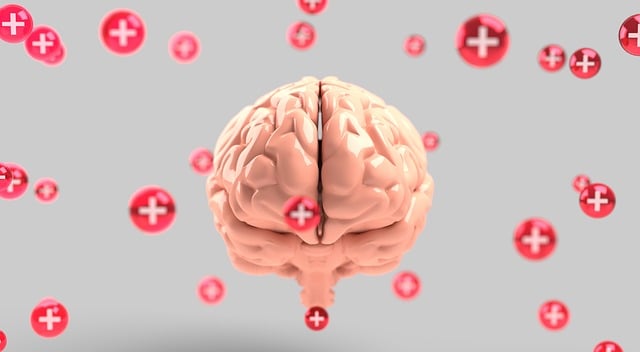Longmont Play Therapy advocates for accurate and compassionate media portrayals of mental illness to combat stereotypes, reduce stigma, and prevent professional burnout. By integrating Stress Reduction Methods and Cultural Competency Training, they strive for an inclusive storytelling environment reflecting real mental health experiences. This approach challenges harmful depictions in traditional media, empowers media creators with innovative tools like play therapy, and fosters empathy among audiences, ultimately improving societal understanding and support for individuals seeking therapy.
In today’s media landscape, accurate representation of mental illness is crucial for fostering understanding and reducing stigma. This article explores the current state of mental health depiction in media, highlighting challenges and pervasive stereotypes. We delve into the transformative role of Longmont Play Therapy, a unique approach promoting authentic portrayals. Furthermore, practical strategies are offered to enhance positive mental health representations. Ultimately, we advocate for collective action to drive change, ensuring media portrays mental illness with depth, realism, and compassion.
- Understanding Mental Illness Representation in Media: The Current Landscape
- Challenges and Stereotypes Portrayed by Traditional Media
- The Role of Longmont Play Therapy in Promoting Accurate Depictions
- Strategies for Enhancing Positive Mental Health Portrayals
- Fostering Change: A Call to Action for More Realistic Representations
Understanding Mental Illness Representation in Media: The Current Landscape

In today’s media landscape, mental illness representation has evolved, but challenges remain. Often, media portrayals perpetuate stereotypes and misconceptions, contributing to the stigma surrounding mental health issues. This is particularly evident in visual media like film and television, where characters with mental illnesses are frequently depicted as either dangerously unpredictable or tragically helpless. Such representations fail to capture the diverse nature of mental illness and can deter individuals from seeking help.
Longmont Play Therapy offers an alternative approach by prioritizing accurate and compassionate representation. By integrating Stress Reduction Methods and promoting Healthcare Provider Cultural Competency Training, they aim to enhance understanding and reduce burnout among professionals. Additionally, Longmont Play Therapy advocates for inclusive storytelling that reflects the real-life experiences of individuals navigating mental health challenges, ultimately fostering a more empathetic society and preventing Burnout Prevention among healthcare providers.
Challenges and Stereotypes Portrayed by Traditional Media

The representation of mental illness in traditional media often presents a multitude of challenges and perpetuates harmful stereotypes. Media outlets have historically relied on simplistic and sensationalized portrayals, reducing complex conditions to mere plot devices or character flaws. This results in a limited understanding of mental health issues among the general public, leading to stigma and discrimination against individuals seeking treatment. For instance, movies and television shows frequently depict depression as temporary sadness or anxiety as a minor inconvenience, failing to capture the severity and impact on daily life. Such representations can discourage those struggling with their mental health from seeking professional help.
Moreover, traditional media often lacks cultural sensitivity in its portrayal of mental illness, mirroring societal biases. Stereotypes based on ethnicity, gender, and socioeconomic status are prevalent, further marginalizing already vulnerable communities. For example, the portrayal of Longmont Play Therapy as a quick-fix solution without addressing underlying systemic issues can be misleading. Self-Awareness Exercises and Mental Health Policy Analysis and Advocacy are essential components of comprehensive mental healthcare. By challenging these stereotypes and advocating for more nuanced representations, media can foster a more supportive environment for individuals navigating their mental health journeys, encouraging open dialogue and promoting effective treatment options like Longmont Play Therapy.
The Role of Longmont Play Therapy in Promoting Accurate Depictions

Longmont Play Therapy stands as a beacon of hope and accurate representation in the media’s ongoing struggle to portray mental illness responsibly. Through its innovative approach, this therapy method offers a unique perspective on addressing various psychological challenges, especially in children and adolescents. By utilizing play as a medium, healthcare providers can gain invaluable insights into their patients’ thoughts, emotions, and experiences, fostering a deeper understanding of complex mental health issues.
This therapeutic technique allows for a more nuanced exploration of problems, enabling practitioners to develop tailored burnout prevention strategies for healthcare providers while also emphasizing the importance of self-care routine development for better mental health. By engaging in play therapy, therapists can help individuals process and express their feelings, potentially preventing or managing conditions like depression. It is a powerful tool that challenges conventional methods and encourages media creators to depict mental illness with greater accuracy, thereby reducing stigma and promoting empathy among audiences.
Strategies for Enhancing Positive Mental Health Portrayals

To enhance positive mental health portrayals in media, several strategies can be implemented. Firstly, incorporating diverse and authentic representations of individuals with mental illnesses can challenge stereotypes and promote understanding. This includes showcasing various conditions, such as anxiety, depression, and PTSD, not just the most prevalent or dramatic ones. Longmont Play Therapy offers a unique lens for depicting emotional healing through creative play, which can be particularly appealing to younger audiences and their caregivers. By featuring characters who engage in self-care practices like meditation, journaling, or art therapy, media can subtly educate viewers about mood management techniques.
Additionally, compassion cultivation practices should be at the forefront of these narratives. Depicting characters who practice empathy, active listening, and non-judgmental support can normalize these behaviors and foster a sense of community around mental health awareness. Risk management planning for mental health professionals is also crucial; media should portray experts who prioritize client safety while offering effective treatments. By integrating these strategies, media content can contribute to a more nuanced and empathetic understanding of mental illness among its audience.
Fostering Change: A Call to Action for More Realistic Representations

The media plays a powerful role in shaping societal perceptions and attitudes towards mental health. Often, representations of mental illness in films, television shows, and news outlets perpetuate harmful stereotypes or simply lack realism. This has significant implications for individuals seeking therapy in Longmont or any other location, as these portrayals can influence public understanding and support for those dealing with emotional challenges.
Fostering change requires a collective effort from media creators, content producers, therapists like those offering play therapy in Longmont, and the public. By advocating for more realistic and nuanced portrayals, we can ensure that mental health issues are addressed with the sensitivity and accuracy they deserve. This includes educating ourselves on emotional regulation techniques and risk assessment practices for professionals, fostering compassion cultivation among viewers, and encouraging open conversations about mental illness to reduce stigma. Together, these steps can revolutionize how mental illness is represented in media, ultimately improving support and care for those in need.
In light of the above discussions, it’s clear that mental illness representation in media has a significant impact on societal perceptions. Traditional media often falls into the trap of perpetuating stereotypes and challenges accurate depiction. However, initiatives like Longmont Play Therapy offer a promising approach to promoting positive, realistic portrayals of mental health. By implementing strategies for enhancing these representations, we can foster a more inclusive and understanding society. It’s time for media outlets to embrace diverse narratives and challenge conventional norms, ensuring that mental illness is represented with sensitivity and accuracy. This calls for collective action from industry professionals, content creators, and consumers alike.












